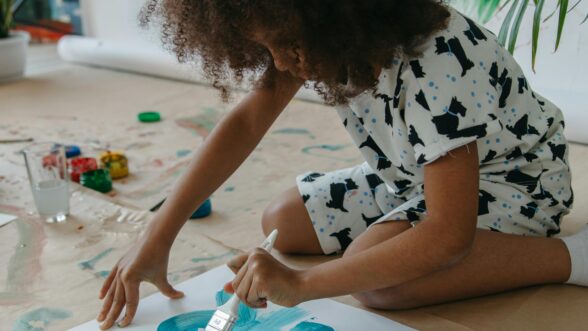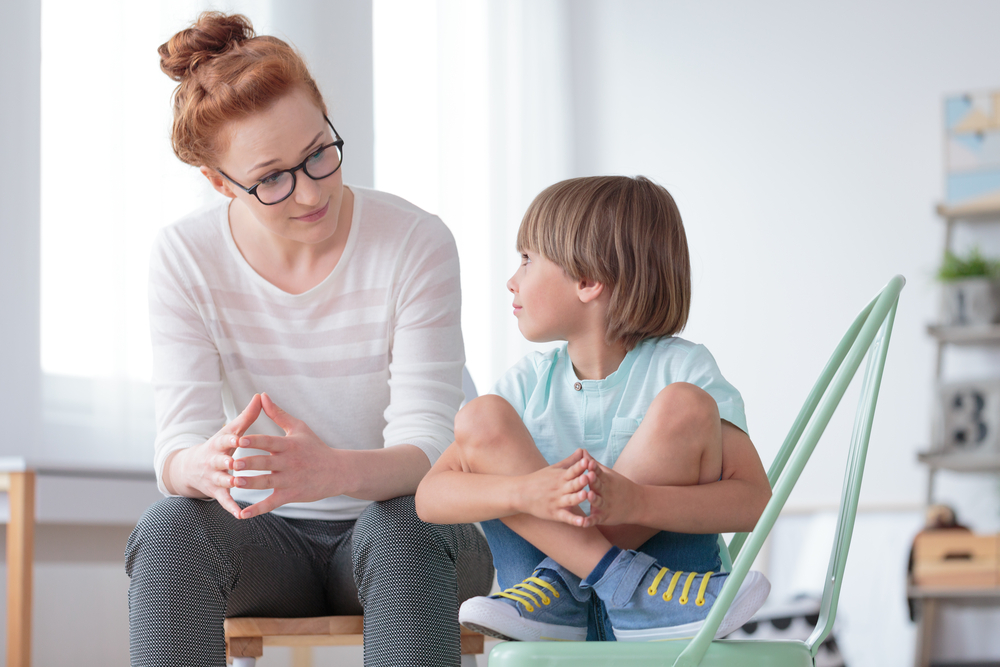Any other Mums and Dads feel like they have no clue how to parent right now? You’re not alone! Instead of trying to figure it out on our own, we’ve asked the experts at Brisbane psychology clinic Benchmark Psychology to shed some light.
It can be hard staying positive through global emergencies – particularly when they’re as overwhelming as the coronavirus pandemic that we are currently facing.
How much should we allow our children to be exposed to, before they become overwhelmed? Dr Aaron Frost, director of Benchmark Psychology, says a little bit of fear may not be a bad thing.
“Fear is an appropriate response to stressful situations, and it keeps us alert to things that might harm us,” says Aaron. “But I would differentiate between being a little fearful and being overwhelmed and full of panic.”
Aaron goes on to explain that global emergencies like this one can bring out both selfishness and selflessness, though it’s important to focus on the positive.
“Honesty is important,” says Aaron. “We should say things like ‘This disease is going to have a large impact, however most people are going to be fine with very little illness at all. We all need to do our part to try and improve the chances for everyone’.”
Aaron explains that children will remember our actions and the choices we made, so think about what lessons you would like them to learn. For example, is it to look out for everyone and pull through this together, or is it just to look after yourself?
“Language, behaviour and body language are all important,” says Aaron. “I think it is always best to speak to children clearly in language that they can understand and help them to understand the real situation to the best of your knowledge.”
You can’t shield them from news that is being broadcast 24/7 through all media and around them, so have a frank and honest dialogue with them instead.
Dr Alison Bocquee, also from Benchmark Psychology, agrees.
“I think sharing information with children regarding coronavirus is important – the information is everywhere already, being broadcast constantly, discussed at school and being planned for on multiple levels,” she says. “By talking to your children with openness and child-friendly language, you can at least have some control over what your child is informed of. This also encourages your child to ask questions of you, because they know you aren’t avoidant or overly distressed about the topic.”
Fellow Benchmark psychologist Dr Jasmine Pang says that one key reason to talk to your children about the serious nature of this pandemic is so that they learn the importance of taking health precautions.
“Explain that we need to follow precautions in order to be socially responsible – not just now, but any time that we have a cold or and in flu season,” says Jasmine. “Recognise that it’s not going to totally prevent occurrences, but it is how we do the best we can.”
What’s more, place a strong emphasis on what they can do to help – for example, learning how to properly wash their hands and practice good personal hygiene habits.
“Model the confidence that we can get through it and place emphasis on doing it together as a family and community,” says Jasmine. “For quarantine specifically, perhaps make a plan and work together to prepare – have a line-up of movies, games, books, quarantine or home-school schedules and other ideas for what you can do while quarantined all ready to go.”
But above all, make sure that you are taking care of your family – and yourself – the best way that you know how. Model good behaviour, manage your own exposure to stay sane and find a healthy balance between staying informed and staying calm.
Remember that this will end – hopefully sooner than we think – and all that will matter is the kind of parent you were throughout.

